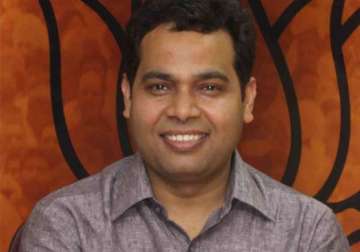New Delhi: BJP today sought an apology from Congress for its “arbitrary” allocation of coal blocks and said the previous UPA dispensation headed by the party stood exposed following the positive response to the Narendra Modi government's move to auction off coal blocks.
“The coal-block auctions have clearly established every thing. Those guilty in the coal scam shall be punished by court, but the Congress leadership should apologise to the nation.
“It should also apologise to the poor and the tribals of West Bengal, Odisha, Jharkhand, Chhattisgarh and Madhya Pradesh as these states are bearing the curse of poverty due to the policies of the Congress-led government,” BJP National Secretary Shrikant Sharma said here.
He charged that the UPA regime had “arbitrarily” allocated coal blocks to Congress ministers and the industrialists associated with them, leading to a massive loss to the exchequer.
Hailing the positive steps taken by the Modi-led NDA government, he said that its commitment to good governance and development was bearing fruit as proven by the auction of the coal blocks, which has brought over Rs 1 lakh crore to the government coffers.
Sharma said that BJP was the first to highlight the coal scam both inside Parliament and outside and the allegations were affirmed by the CAG as he calculated the size of the scam to be at Rs 1.86 lakh crore.
He said that the arbitrary coal block allocations, which Supreme Court later cancelled, had deprived crores of people in West Bengal, Odisha, Jharkhand, Chhattisgarh and Madhya Pradesh of the benefits of the valuable resources which these states possess.
“Not only that, the Congress ministers, looking to hide their corrupt acts, misled the nation and made false allegations against constitutional institutions,” Sharma said while taking a dig at Congress ministers' “zero loss” theory.
“Notably, the main beneficiaries due to the auctioning of the coal blocks are Odisha, Madhya Pradesh, West Bengal, Jharkhand and Chhattisgarh, which are rich in natural resources but backward in economic growth,” he said.
